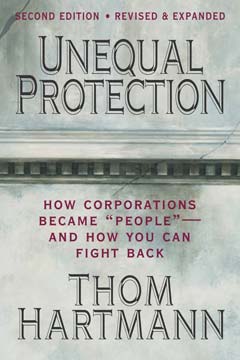Gordon Clark,
“The Christian view of things also seems to resemble a dualism: At least the world and God may be called two ‘substances’ ; neither one is the substance of the other. But actually Christianity is more successfully monistic than Neoplatonism was. God alone is the eternal substance, the independent principle’ apart from creation of the world nothing exists besides him. This underlines the essential and controversial elements of the Hebrew-Christian doctrine. First, as Creator, God is viewed, not as an undifferentiated One that produces a world by necessity, but as a living mind who with foreknowledge created voluntarily. Plotinus explicitly denied will to his One; but will is one of the most prominent aspects of the Biblical Deity.” Thales to Dewey, pg. 189
Ryan Hedrich has recently published a blog here where we are once again brought into possibly my favorite “land” in all of human philosophy. This ground is holy as it were. When discussing this issue and thinking upon it I feel on one hand, revitalized in the Garden of Eden as it were, and on the other a wise grey headed and bearded old man whose wisdom is white with age and whose heart is wide and deep as the Pacific Ocean. This is the source of all error and all truth. Get this issue wrong and you will become nothing short of a Luciferian if you take your error consistently. Ryan and I have yet to come to terms on this issue so maybe this will be our final voyage to these lands but hopefully not. I have a feeling that the new forum in California will read this and experience some serious mind-gasms.
Ryan states,
“Finding Scriptures which deal with this issue will require consideration of logical implications, for to my knowledge there is no explicit passage which addresses it. My current response would be that nothing which occurs is unnecessary, for that would imply, as Clarke wishes to avoid, that God’s will is arbitrary.”
>>>We have already discussed this. Your use of “unnecessary” is ambiguous. You could mean a necessity of God’s nature or of a necessity extending from the eternality of his will. (link). I think you are still stuck in the dialectic between a necessity of nature and an arbitrarity.
“Sure, on the assumption that there are multiple possible worlds”
>>Possible according to nature or to will?
“God may have a reason for instantiating some particular possible world, but as on Clarke’s view such a reason would not be necessary, it would still be arbitrary.”
>>>Again, the word “reason” here is ambiguous. It could mean an extension of nature or of the eternality of the will.
“I may as well ask what God’s reason was for choosing His reason”
>>>The word “reason” can be replaced by the word “basis” and as we have discussed many times there are two of those in God: nature and will. So yes you could ask what was the basis of his eternal will, and I would respond, the agreeability of his nature.
“for creating this possible world over against any other reason capable of being chosen which might have led to the instantiation of another possible world, and there could be no answer because the reason itself was chosen arbitrarily.”
>>>Again you keep changing your words but here, the word ‘possible”, could mean a necessity and extension of nature or of the eternality of the will. You just keep making the same statement over and over again with the same meaning which includes the same conflation.
“Thus, he, Athanasius, and others dichotomize that which is willed from that which is a “necessity of nature.”
>>>And me as well. Don’t forget me.
“But I do not find his reasons for saying so persuasive: he mentions that I might as well say that a man’s heart beats by his will”
>>>Ah, but that is not a necessity of nature. That is activity agreeable to nature. When your body along with your heart is rotting in the grave and you are dwelling among the saints in glory, pre-resurrection, you may think to yourself: “Damn, that really wasn’t a necessity of nature.”
“the sun rises by man’s will”
>>>This is strange. We are talking about the activities of subject and the basis of those activities within that same subject. You are saying that another subject, subject b (the sun) acts according to the will of subject a (man). Don’t follow. I think you are using an equivocal sense of “by” in the statement. It is not a necessity of man’s nature or of his will to emanate light that makes the plants of the world grow.
“and a balance which turns necessarily turns by its will.”
>>>A balance?
“Until he does, the burden of proof is on him to explain why necessity is mutually exclusive with will.”
>>>I don’t believe they are mutually exclusive. I deal with this here, #3.
“Anyway, I don’t suppose Sean will have any issue with my explanation, as this is entirely consistent with Gordon Clark’s view 1) that God’s existence is necessary yet by His eternal will and choice, and 2) that the generation of the Son is voluntary and necessary like creation (see his chapter on Eternal Generation in The Trinity).”
>>His explanation, there is contradictory to Thales to Dewey. I have cataloged that here.
“Whereas Sean thinks I bring the Son and Spirit down to the level of creation by making the them contingent – a counter which backfires, as [I would hope] Sean would not say the person[al property] of the Son is created even though he holds that the person[al property] of the Son is contingent”
>>>Good argument.
“Now, I admit I have perhaps missed some solution which would resolve the tension between an unnecessary creation and a seemingly arbitrary God but if so, I have not encountered it.”
>>>We already spoke to this problem. The tension is a straw man that you have created. You think that necessities are only necessities of nature. I have affirmed that a necessity can also extend from the eternality of God’s will and thus openly deny that creation is arbitrary, thus denying any other possible world, while also denying that it is a necessity of divine nature.
“It seems easier for me to explain why a necessary creation is not divine than it is to explain why an unnecessary creation is not arbitrary.”
>>>That is only possible because you are using the word “necessary” ambiguously.
“but I assert that creation is not consubstantial with the Father because the Father did not [and, therefore, could not”
>>>OUCH! Here we have a conflation of activity, essence and existence. This is ADS.
“on my view have willed to] communicate His nature to creation. Thinking about this question recently, I found myself asking: is divine nature communicated to the Son and Spirit because they are eternally begotten and spirated, or are the Son and Spirit said to be eternally begotten and spirated because the divine nature is communicated to them?”
>>>The former. The emanation is the basis of the communication, in the genus of relation. The latter makes the emanation arbitrary and ad hoc. WE may have here encountered the Hegelian Dialectic. In order to avoid an arbitrary God, you are forced to have an arbitrary God.
“If the latter is possible, then is this not a reasonable answer as to why the necessity of creation would not imply consubstantiality with its Creator?”
>>>No. One because the latter view is itself arbitrary and ad hoc. Two: https://eternalpropositions.wordpress.com/2011/10/01/darkness-a-consistent-hyper-calvinist/
This link is my answer to why an extension by necessity of nature requires communication.







-1-.jpg)


























“We have already discussed this. Your use of “unnecessary” is ambiguous. You could mean a necessity of God’s nature or of a necessity extending from the eternality of his will. (link). I think you are still stuck in the dialectic between a necessity of nature and an arbitrarity.”
Correct me if I am wrong but I may have agreed with you on this point in my response to you on the group discussion. I was trying to argue for a “necessity” of nature and also a “necessity” of will. You say a “necessity” extending from the “eternality” of his will. What would be the difference – could you elaborate?
It sounds to me that you are saying creation is not of God’s nature but of the “nature of His will” – hat is, His will’s eternality.